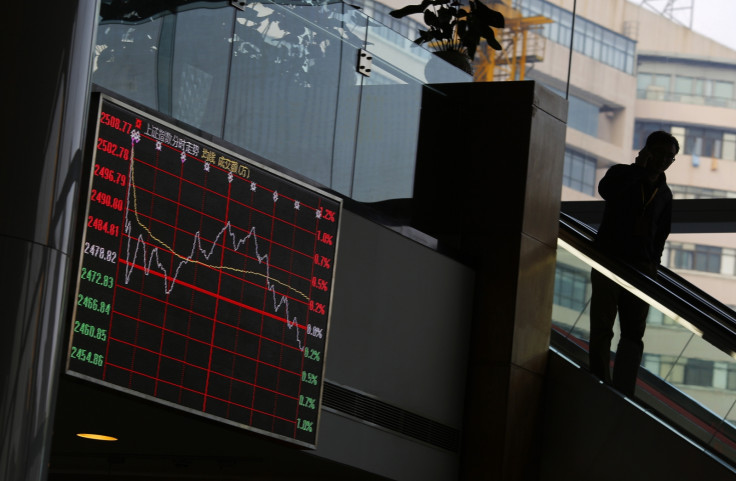Asian markets slip as Trump expresses concern about a strong dollar
The Nikkei faced a sharp decline of 1.04%.

Asian stocks market indices were trading lower on Thursday (13 March) following comments made by President Donald Trump that the US dollar was too strong.
Trump's take on dollar's strength indicated that he favoured a low interest rate.
"The big question for traders, which I am sure will be debated today and over the Easter period, is whether President Trump is indirectly talking down the rally in the USD, but he is now having an effect on literally every other asset class", remarked Gary Burton, market analyst at IG Melbourne.
The latest geopolitical tensions also had an impact on investor sentiment. Negative developments in ties between Washington and Moscow over Russia backing Syrian President Bashar al-Assad and tension between the US and North Korea added to the slip.
CNN reported US Secretary of State Rex Tillerson noting that relations with Russia have reached a "low point" with a "low level of trust" between the two countries.
The Shanghai Composite emerged as the sole optimistic note in Thursday's markets coverage, which may have been the product of Trump's new reconciliatory tone towards Beijing.
The following quotes have been logged on 6:31am BST.
Japan: Nikkei- Down by 1.04% to 18,358.99
The Nikkei experienced a particularly sharp drop with a decline of 1.04%. An abrupt end of the yen's rally against the pound may have contributed to the downturn.
Distraught electronics conglomerate Toshiba (-4.93%) emerged as one of the weakest performers. Mitsubishi Corp (-3.31%) also continued its downward trend.
On a more positive note, the Bank of Japan (BoJ) announced that M2 money stock in Japan, which comprises of notes in circulation and short term bank deposits, have beat forecasts by 0.1% to report a gain of 4.3%. The steady supply of money in the economy is complementary to BoJ Governor Haruhiko Kuroda's commitment to quantitative easing in order to meet inflationary targets.
Hong Kong: Hang Seng- Down by 0.10% to 24,288.13
Cathay Pacific Airways (+2.01%) has emerged as one of the strongest performers while PetroChina (+0.70%) has made a commendable recovery.
Company shares from the banking and financial services sector appear to be particularly weak as Hang Seng Bank Ltd (-1.01%), HSBC Holdings PLC (-0.55%), Bank of China Hong Kong Holdings (-0.47%), and China Life Insurance Co Ltd (-0.43%) are the index's weakest performers.
China: Shanghai Composite- Up by 0.16% to 3,728.925
The Shanghai Composite performed well, possibly due to Trump's reconciliatory tone with Beijing, as the US President has reversed his stance on labelling China as a currency manipulator.
The General Administration of Customs also announced that Chinese exports grew to an exponential 16.4% year-on-year in March, beating economists' expectations of a 4.3% increase.
Australia: S&P/ASX- Down by 0.77% to 5,888.102
Singapore: Straits Time- Down by 0.67% to 3,164.66
India: Sensex- Down by 0.22% to 29,579.41
The Sensex moved on cautious footing following mixed signals displayed in the release of economic data on Wednesday (April 12)
The Central Statistics Office reported on Wednesday that the Consumer Price Index (CPI) rose at 3.81% year-on-year in March, a marginal decline from expectations of a 3.9% increase.
However, the Office also noted that Indian industrial output had unexpectedly declined by 1.2% on February, which sharply contrasted expectations of a 1.3% increase.
© Copyright IBTimes 2025. All rights reserved.


















